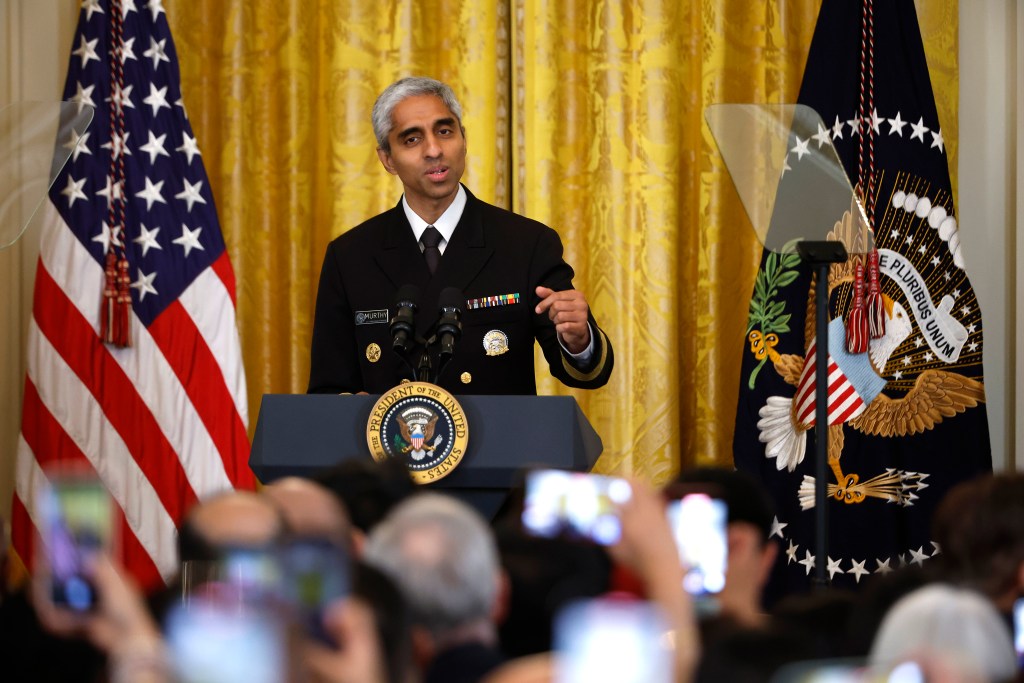ARTICLE AD

![The Duke and Duchess of Cambridge visit Cambridgeshire County Day at Newmarket Racecourse in Newmarket, Suffolk, UK, on the 23rd June 2022. Picture by Paul Edwards/WPA-Pool. 23 Jun 2022 Pictured: Prince William, Duke of Cambridge, Catherine, Duchess of Cambridge, Kate Middleton. Photo credit: MEGA TheMegaAgency.com +1 888 505 6342 (Mega Agency TagID: MEGA871414_013.jpg) [Photo via Mega Agency]](https://hollywoodlife.com/wp-content/uploads/2022/08/MEGA871414_013.jpg?fit=362%2C440)


When the U.S. Surgeon General released an advisory involving alcohol use and its alleged link to cancer on Friday, January 3, alcohol stocks tumbled. According to the New York Post, shares of both American and European alcoholic brewers and makers plummeted after the statement calling for cancer warnings on the labels of spirits. The news rocked the general public, given the popularity of consuming alcohol. According to Gallup, Inc, in 2022, 63% of middle-income earners 18 and older said they drink. Among those earning over $100,000, a whopping 80% reported drinking.
So what exactly did the advisory say, and what do we know about the Surgeon General who issued the warning? Is there actually a link between alcohol consumption and certain cancers? Click below to learn more.
Who is Vivek Murthy?
 Can alcohol cause cancer? US Surgeon General Vivek Murthy, seen here, believes so. (Photo by Kevin Dietsch/Getty Images)
Can alcohol cause cancer? US Surgeon General Vivek Murthy, seen here, believes so. (Photo by Kevin Dietsch/Getty Images)
Vivek Murthy is the current United States Surgeon General. The British American physician is also a vice admiral in the United States Public Health Service Commissioned Corps. According to Wikipedia, he served as the 19th and 21st surgeon general under former Presidents Barack Obama and Donald Trump, and current president Joe Biden. He will leave office on January 20.
What Did the Surgeon General Warn About Alcohol & Cancer?
According to NPR, the new advisory draws a link between alcohol and seven types of cancer. “Alcohol is the third leading preventable cause of cancer behind tobacco and obesity,” he told the outlet. “Just to put this in perspective, alcohol is responsible for about 100,000 cases of cancer in the United States each year and 20,000 cancer deaths.”
Murthy also reportedly told Steve Inskeep of Morning Edition the seven cancers associated with alcohol use. They are colorectal, esophagus, voice box, mouth, liver, breast, and throat. “For certain cancers, like breast, mouth, and throat cancers, evidence shows that the risk of developing cancer may start to increase around one or fewer drinks per day,” Murthy wrote in the advisory. “Alcohol consumption is the third-leading preventable cause of cancer in the United States, after tobacco and obesity, increasing risk for at least seven types of cancer,” he added in a statement that came with the release of the report.
The decision of whether or not to heed Murthy’s advisory and add cancer warnings to labels will ultimately be made by Congress.
Can Alcohol Cause Cancer?
The report goes so far as to allege a “direct link” between alcohol consumption and cancer risk. “The direct link between alcohol consumption and cancer risk is well-established for at least seven types of cancer including cancers of the breast, colorectum, esophagus, liver, mouth (oral cavity), throat (pharynx), and voice box (larynx), regardless of the type of alcohol (e.g., beer, wine, and spirits) that is consumed,” stated the report. “For breast cancer specifically, 16.4% of total breast cancer cases are attributable to alcohol consumption.”
The National Cancer Institute supports claims of a link between alcohol and cancer. “There is a strong scientific consensus that alcohol drinking can cause several types of cancer,” the site states. It adds that “the National Toxicology Program of the US Department of Health and Human Services lists consumption of alcoholic beverages as a known human carcinogen.”
Continuing, a National Cancer Institue fact sheet states that, “the evidence indicates that the more alcohol a person drinks—particularly the more alcohol a person drinks regularly over time—the higher his or her risk of developing an alcohol-associated cancer. Even those who have no more than one drink per day and binge drinkers (those who consume 4 or more drinks for women and 5 or more drinks for men in one sitting) have a modestly increased risk of some cancers. Based on data from 2009, an estimated 3.5% of cancer deaths in the United States (about 19,500 deaths) were alcohol related.”
The fact sheet also alleges “clear patterns” between the use of alcohol and types of cancer including liver, breast, colorectal, head and neck, and esophageal.

.png) 1 day ago
24
1 day ago
24 

